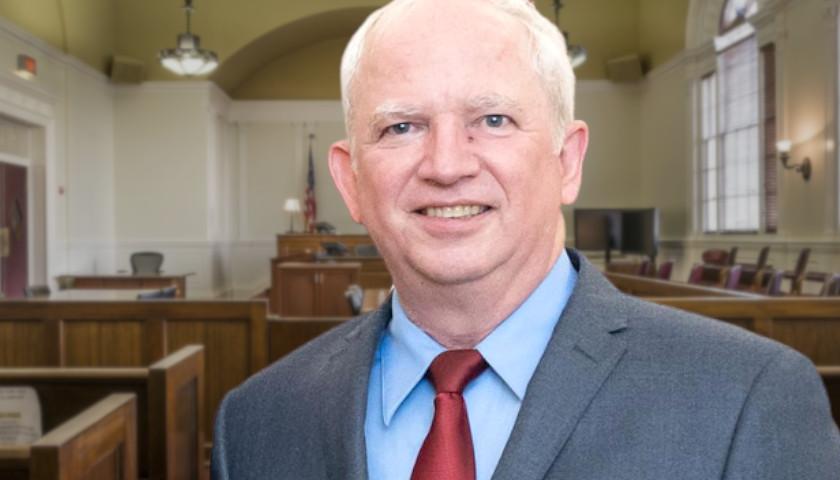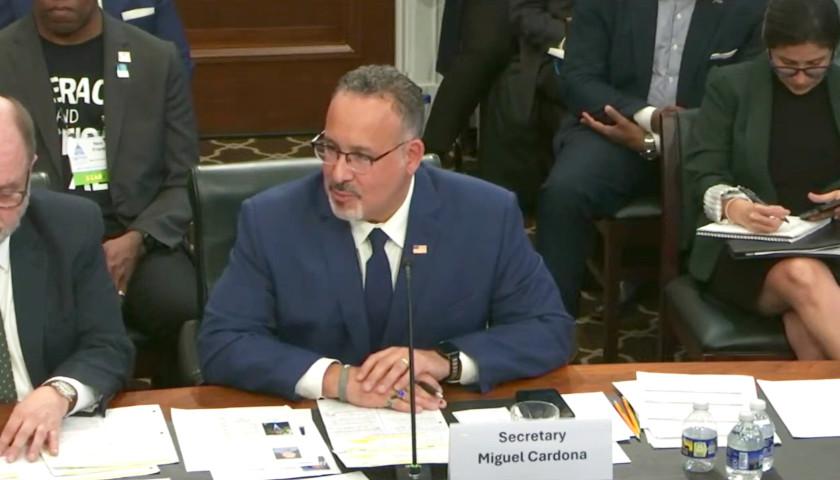by Scott McClallen
Gov. Gretchen Whitmer signed the $17 billion School Aid bill into law at Kentwood Public Schools.
The law aims to eliminate the funding gap between districts at the minimum and maximum foundation allowances.
“As we look to the next school year and beyond, we know that every student deserves to be funded at the same level to ensure an equal opportunity to succeed, and I am proud to say that we are able to do that today,” Whitmer said in a statement. “The funding provided to our schools today marks the end of a 27-year journey to close the gap between our districts. This equalized funding will improve the quality of educational opportunities for schools and students across the state and set a solid foundation for which to build our future.”
The budget includes $723 million to eliminate the gap between the minimum and maximum foundation allowance by setting both at $8,700 per pupil, an increase of $589 per pupil from the current year minimum amount, and an increase of $171 per pupil from the current year target amount. Intermediate school districts will receive a 4 percent operational funding increase.
“This is a historic step – nearly three decades in the making – benefitting our students and schools at a time they need help the most,” House Appropriations Chair Rep. Thomas Albert (R-Lowell) said in a statement. “After the disruption of the COVID-19 pandemic, our kids need unprecedented support to catch up on lost learning and return to normalcy. This measure provides that support for kids no matter where they live or go to school.”
The fiscal year 2022 School Aid budget also increases access to early education through the Great Start Readiness Program, which provides preschool to families at or below 250 percent of the federal poverty level.
The new investment totals $168.5 million, with $121 million in federal funding and $47.5 million from the School Aid Fund. The full-day per child allocation is increased from $7,250 to $8,700. The expansion is the first of a three-year phase seeking to boost occupancy to 22,000 additional income-eligible children by the fourth year.
“Every budget is about choices. This budget expands Great Start Readiness Program pre-kindergarten and puts in place a three-year plan to move to universal pre-kindergarten for all eligible students, the first goal of the state’s Top 10 strategic education plan and a gift that will keep on giving throughout the education and lives of our children,” State Superintendent Dr. Michael Rice said in a statement.
The budget provides:
- $240 million over three years for additional hirings in high-need districts. After three years, these new hires are fully funded in an ongoing manner by the district.
- an increase of $17 million to support school-based mental health programming
- $74.2 million for Special Education
- funds for students who need them the most through a weighted funding formula
- $11.5 million for benchmark assessments
Lawmakers welcomed the bipartisan deal after 15 months of negotiations over the governments’ handling of the COVID-19 pandemic.
“Since the passage of Proposal A, lawmakers have been working on ways to close the foundation allowance gap. With a budget surplus, federal support, and the hard work of dedicated policymakers, we’ve finally reached that goal,” Rep. Joe Tate (D-Detroit) said in a statement. “Coupled with the increase in Great Start funding, this K-12 budget is a historic, transformational investment in Michigan’s children that will have a positive impact for years to come.”
– – –
Scott McClallen is a staff writer covering Michigan and Minnesota for The Center Square. A graduate of Hillsdale College, his work has appeared on Forbes.com and FEE.org. Previously, he worked as a financial analyst at Pepsi.









I guess your taxes are going to go up so the teachers and administrators will get the bulk of that money and your kids will learn nothing except for how racist white people are!!!!